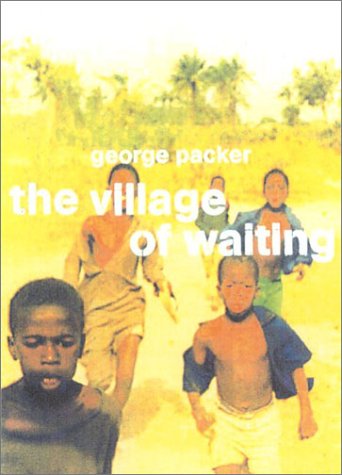December 10, 2003 - Stanford Report: Orwell exerts strong influence on Togo RPCV Writer George Packer
Peace Corps Online:
Directory:
Togo:
Peace Corps Togo :
The Peace Corps in Togo:
December 10, 2003 - Stanford Report: Orwell exerts strong influence on Togo RPCV Writer George Packer
Orwell exerts strong influence on Togo RPCV Writer George Packer

Orwell exerts strong influence on Togo RPCV Writer George Packer
George Packer, whose recent book Blood of the Liberals won the 2001 Robert F. Kennedy Book Award, said he first read Homage to Catalonia when he was 23, during a flight back to America after a discouraging stint in the Peace Corps. The young man was so captivated by Orwell's journalistic style -- the rhythm of his sentences and particularly his use of first-person narrative -- that he began a "Zen-like" apprenticeship to emulate the celebrated author.
"For me," Packer explained, "what was useful was that Orwell had lived certain things and had written about them in a way that seemed uncomplicated." In fact, there's something artless about Orwell, he said. "A lot of his sentences are clumsy. There are word repetitions; he wrote all his books really quickly. Yet you could learn from his sentences. They were not Faulkner's, not Bellow's. They were sentences you could emulate."
If George Orwell were alive today, what subjects might he explore in his books? Would the much-quoted author of Animal Farm and 1984 be skewering Big Brother Saddam Hussein or George Bush's "newspeak"? Or would he be less interested in politics and more intrigued by the world of modern commerce, advertising and public relations?
In any case, "Orwell's critical intelligence was such that he never would have run out of topics," said Peter Stansky, the Frances and Charles Field Professor of History, during a Dec. 3 symposium marking the centennial of the British writer's birth. "Orwell, Literature and Politics, Then and Now," which drew a near-capacity crowd to Annenberg Auditorium, also included remarks by New Yorker staff writer George Packer; Orville Schell, dean of the University of California-Berkeley Graduate School of Journalism; and Alex Woloch, an assistant professor of English at Stanford.
Orwell, who was born Eric Arthur Blair on June 25, 1903, may be best known for his depictions of hellish fictional worlds that have succumbed to totalitarianism. But panelists agreed that Orwell's nonfiction works also deserve a close look, particularly his 1938 account of the Spanish Civil War, Homage to Catalonia.

Some postings on Peace Corps Online are provided to the individual members of this group without permission of the copyright owner for the non-profit purposes of criticism, comment, education, scholarship, and research under the "Fair Use" provisions of U.S. Government copyright laws and they may not be distributed further without permission of the copyright owner. Peace Corps Online does not vouch for the accuracy of the content of the postings, which is the sole responsibility of the copyright holder.
Story Source: Stanford Report
This story has been posted in the following forums: : Headlines; COS - Togo; Writing - Togo
PCOL8874
36
.

